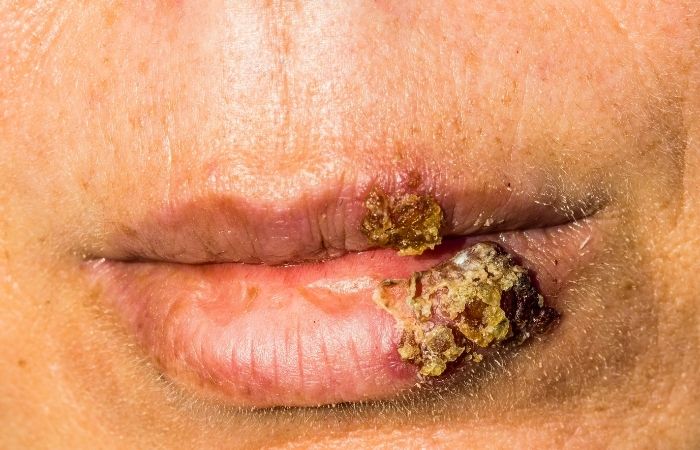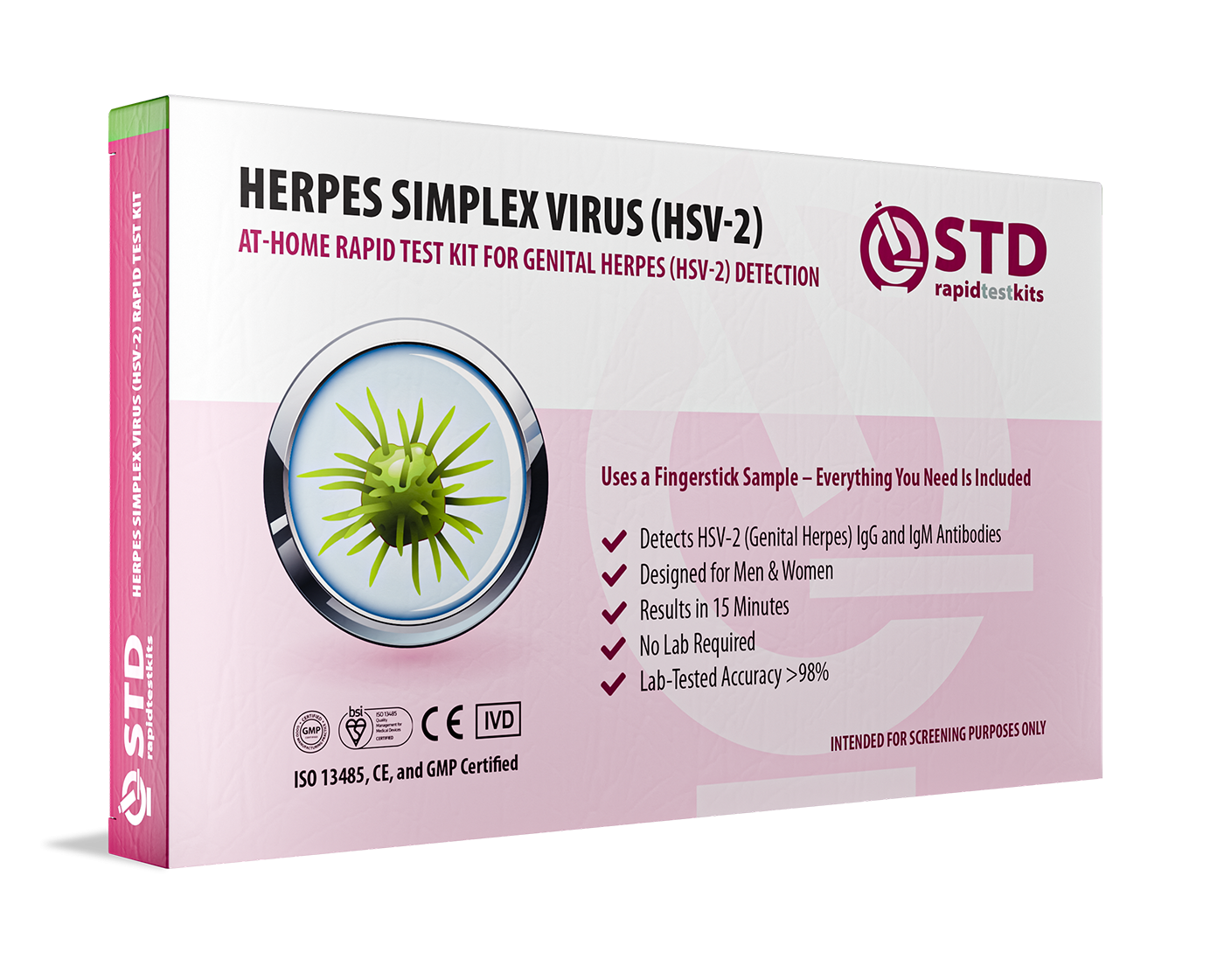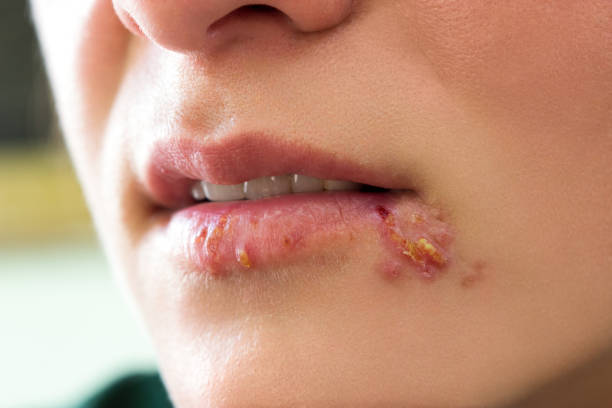Quick Answer: Yes, you can absolutely date, and even fall in love, after a herpes diagnosis. It’s common, manageable, and doesn’t define your worth. The key lies in honest disclosure, informed boundaries, and rebuilding sexual confidence with partners who respect your health and your humanity.
That First Freak-Out Is Normal, But It Won’t Last
Herpes hits hard emotionally, not because of what it is, but what it means. It’s often diagnosed during a crisis, your first outbreak, painful sores, a terrified Google search, or a late-night ER visit. The fear isn't just physical; it’s existential: “What does this mean about me now?”
But slow down. Herpes is a skin condition. Yes, it’s sexually transmitted. Yes, it can recur. But it’s not deadly. It’s not rare. And most people with it live full romantic, sexual, and partnered lives.
So grieve if you need to. Cry, scream, cancel that date. But know this panic phase isn’t permanent. The shame will ease. The confidence will return. And one day, you’ll remember this diagnosis as just a footnote, not a headline.


People are also reading: Can You Get an STD Even with a Condom?
How Herpes Is Transmitted (And What That Means for Dating)
Herpes spreads through skin-to-skin contact, even without visible symptoms. That means it can be passed through:
- Oral sex (especially HSV-1, the “cold sore” version)
- Genital contact (with or without penetration)
- Anal sex
- Touching or rubbing against infected areas
What’s more, most people who transmit herpes don’t even know they have it. They’ve never been tested. Or they don’t recognize their symptoms. That means when you do know your status, you’re already miles ahead: more aware, more careful, more empowered.
When it comes to dating, that knowledge becomes power. It lets you make informed choices, communicate clearly, and protect partners in ways they might not even be protecting themselves.
When and How to Disclose (Without Apologizing)
This is the part that causes the most dread: telling someone you have herpes. What if they freak out? What if they ghost you? What if they tell someone?
Here’s a better question: What if they say, “Thanks for telling me. That took guts.”
Disclosure is about honesty, not guilt. You don’t owe someone an apology for having a common virus. You owe them information, consent, and clarity.
Try this script:
“Before we get more physical, I want to share something. I have herpes, it's managed, and I take steps to protect partners. I’m happy to answer any questions, and I understand if you need time to think. But I want to be honest and respectful of your choice.”
Keep it calm. Keep it factual. If they’re worth your body, they’re worth your truth. And if they bolt? That’s not a loss. That’s just dodging someone who wasn’t emotionally safe.
The Fear of Rejection, and Why It Doesn’t Mean You’re Undesirable
Let’s be real: some people will say no. Not because you’re dirty. Not because you’re broken. But because they’re scared, uninformed, or just not equipped to have nuanced sexual conversations.
Rejection hurts. But it’s not always about you. It’s about their own limits, education, and baggage. And if herpes is the dealbreaker, that person was never going to be your person anyway.
Every time you disclose, you weed out those who can’t meet you with respect, and make space for those who can. That’s not failure. That’s dating on your terms.
Check Your STD Status in Minutes
Test at Home with RemediumOral Herpes Test Kit

 For Men & Women
For Men & Women Results in Minutes
Results in Minutes No Lab Needed
No Lab Needed Private & Discreet
Private & DiscreetOrder Now $33.99 $49.00
Managing Outbreaks, Meds, and Your Sex Life
Dating with herpes doesn’t mean abstaining forever. It means knowing your body, managing your symptoms, and having smarter sex.
Here’s what works:
- Antiviral Medication (Valacyclovir, Acyclovir): Daily suppressive therapy lowers your chances of transmission by up to 50% and reduces outbreak frequency.
- Condoms or Dental Dams: They add another layer of protection, especially during times of viral shedding when no symptoms are visible.
- Avoid Sex During Outbreaks: If you feel tingling, burning, or see sores, wait until everything’s fully healed before resuming sexual contact.
For many people, the first year after diagnosis is the hardest, physically and emotionally. But outbreaks tend to become less severe and less frequent over time. Some people have one and never see another.
Managing your health lets you re-enter intimacy from a place of control, not fear.
Dating Apps, Filters, and the Herpes Dating Scene
Some folks decide to disclose in their dating app bios. Others prefer to wait until there’s emotional connection. There’s no “right” timing, only what feels ethical and safe to you.
That said, some platforms cater specifically to STI-positive singles, including:
- PositiveSingles – Largest and most established herpes/HIV+ dating app
- MPWH (Meet People with Herpes) – Discreet and private STD-aware dating community
- Hope – A newer, app-based platform focused on STI-positive dating and support
While niche dating apps can feel like “limiting your pool,” many users find relief in not having to explain or defend themselves repeatedly. Others stay on mainstream apps and simply build their confidence in disclosure over time.
Whatever your strategy, remember: you’re not hiding, you’re curating. You get to choose who gets close to your body. Not the other way around.
Herpes and Consent: Making Intimacy Safer and Sexier
We often think of consent as “yes or no to sex.” But living with herpes teaches a more nuanced truth: real consent means informed, ongoing, pressure-free agreement.
Disclosing herpes can actually deepen intimacy, because it invites conversations most couples skip, about testing, comfort levels, safety, and feelings. It builds trust from day one. And that trust becomes the foundation for really good sex.
Some things to talk about:
- What protection do you both feel good using?
- Are you on meds, and how do you manage outbreaks?
- Are there specific times you avoid intimacy?
These talks don’t kill the vibe. They create it. They show you’re caring, aware, and worth every second of the connection you’re building.

People are also reading: STD Red Flags: When That Itch, Bump, or Burn Means Something Serious
You Are Not a Walking Warning Label
One of the hardest parts of post-diagnosis dating is feeling like your body is now a cautionary tale. You may worry that your sexuality is now tainted. That no one will want you. That your sex life is over.
That’s stigma talking. Not science. Not truth. Not your body.
You are still sexy. Still wanted. Still desirable. Your herpes status doesn’t cancel your capacity for pleasure, connection, or love.
If anything, being open about herpes means you’re probably more honest, more emotionally mature, and more sexually responsible than most people out there. That’s not a flaw, it’s a superpower.
And the people who get to know the real you? They’ll see that. And they’ll be lucky as hell.
How to Rebuild Sexual Confidence After a Diagnosis
Herpes messes with your head. Not just because of the virus, but because of what society teaches us to fear about it. You may feel dirty, dangerous, or undesirable. But those feelings aren’t facts. They’re trauma responses to a culture that punishes sexual vulnerability.
To rebuild sexual confidence, try these steps:
- Educate Yourself: Understand transmission risks, treatment, and myths so you can push back against fear with facts.
- Talk to Other Positive People: Online communities like Reddit’s r/Herpes or PositiveSingles forums are filled with real, raw stories that normalize what you're feeling.
- Practice Saying It Out Loud: Disclosure doesn’t have to be rehearsed, but getting comfortable saying the word “herpes” without flinching is powerful.
- Celebrate Your Sexual Self: Whether through solo sex, erotic media, or flirtation, you deserve pleasure just like anyone else.
Your sex life isn’t over. It’s evolving. And sometimes, that’s where the best chapters begin.
What to Do If Someone Reacts Badly
You’ll likely encounter at least one person who reacts with fear, ignorance, or even cruelty. That’s not a reflection of your worth, it’s a reflection of their unpreparedness.
When that happens, you can:
- Politely disengage: “Thanks for your honesty. I wish you well.”
- Redirect the blame: “Actually, most people get it from partners who don’t know they’re infected. I’m being upfront, many people aren’t.”
- Let yourself grieve, then move on: You’re allowed to feel hurt. But don’t let their discomfort define your future.
Each bad reaction makes room for someone else, someone better, braver, more loving. And you deserve that.
Check Your STD Status in Minutes
Test at Home with RemediumGenital Herpes Test Kit

 For Men & Women
For Men & Women Results in Minutes
Results in Minutes No Lab Needed
No Lab Needed Private & Discreet
Private & DiscreetOrder Now $45.99 $49.00
Love After Herpes: Real Stories, Real Hope
You won’t hear them in movies, but they’re everywhere, real people finding real love after herpes. Stories like:
“He said, ‘Thanks for telling me. I have HSV-1, too. We can just talk about what works.’ And I cried. Because it was so kind.”
“She looked it up, texted me two hours later and said, ‘I still want you.’ That’s when I knew we could build something.”
These aren’t rare unicorns. They’re proof that when you lead with honesty and heart, the right people lean in, not out.
Herpes doesn’t stop love. It reveals who’s ready for it.
Wanting Sex Without Relationships? You Still Deserve Safety
Not everyone with herpes wants long-term love, and that’s okay. You’re still entitled to casual sex, hookups, kink, and play without shame or secrecy.
When navigating non-monogamous or casual scenes, disclosure can feel riskier. But it can also be easier. Many sex-positive communities are more educated and respectful than average. Use tools like:
- Clear digital bios in sex-positive apps
- Pre-negotiated language at kink or swinger events
- Consent cards or checklists that include STD status and boundaries
And remember: protection and pleasure can coexist. You don’t have to trade your safety for excitement. The sex you want is still on the table. So is the respect you deserve.
The Power of Telling Your Story (Even Just Once)
Stigma feeds on silence. It thrives in isolation, shame, and secrets. One of the most powerful things you can do, if and when you're ready, is to tell your story.
This doesn’t mean going public or posting your diagnosis on social media. It can mean:
- Writing about your experience in a journal
- Sharing anonymously in an online forum
- Telling one trusted friend, therapist, or partner
Why? Because naming something strips it of power. Shame thrives when you believe you're the only one. But herpes is deeply common. Deeply human. And telling your story, even once, can feel like setting down a heavy weight you didn’t know you were carrying.

People are also reading: Is Oral Sex a Potential Mode of HIV Transmission?
How to Respond When Your Partner Has Herpes
Not everyone reading this will have herpes. Some of you might be here because someone you care about just told you they do.
Here’s how to respond like someone who gets it:
- Thank them. Disclosure takes serious courage. A simple “Thank you for telling me” is powerful.
- Don’t panic. Get informed. Ask questions. You don’t have to decide anything right away.
- Ask how they manage it. Are they on meds? Do they know their triggers? Do they use protection?
- Remember, it’s your choice, but don’t make it from fear.
Being with someone who has herpes doesn’t mean giving up safety or sex. It means being honest, careful, and human. Just like every other relationship.
Fighting Back Against Stigma in Your Own Circle
We don’t live in a vacuum. Even if you’ve made peace with your status, others might not know how to talk about it yet. Friends, family, and even medical providers can say things that sting.
If you're ready, push back gently:
- “Actually, it’s super common.”
- “It’s manageable with meds.”
- “It doesn’t make someone any less worthy of love.”
Every time you correct a cruel joke, challenge a myth, or show up in your full truth, you chip away at the silence. You remind the world that people with herpes are not punchlines. We’re lovers, parents, students, survivors. We are here, and we’re not ashamed.
How At-Home Testing Helps Build Trust
Living with herpes means navigating consent in new ways, but you’re not alone. Many couples now use STD Rapid Test Kits to have proactive, low-pressure conversations about sexual health.
Testing together can mean:
- Mutual understanding of risks
- Deciding what protection you both feel good about
- Setting a pattern of honest communication from the start
Whether you’re newly diagnosed or dating someone with herpes, at-home testing makes it easy to stay informed, on your schedule, in private, and without judgment. Trust starts with knowledge, and knowledge starts with access.
Check Your STD Status in Minutes
Test at Home with RemediumGenital & Oral Herpes Test Kit

 For Men & Women
For Men & Women Results in Minutes
Results in Minutes No Lab Needed
No Lab Needed Private & Discreet
Private & DiscreetOrder Now $75.00 $98.00
For all 2 tests
FAQs
1. Is it still possible for me to date if I have herpes?
Of course. After getting herpes, millions of people date, fall in love, and have sex. Being honest, taking your medicine, and being safe all help.
2. Do I have to tell everyone I go out with?
Yes, if there is a chance of sexual contact, disclosure is part of ethical consent. You don't have to tell people you don't know well or who aren't interested in sex.
3. When should I let someone know I have herpes?
Before sex, but only after trust has started to grow. Some people tell each other on the first date, while others wait until they both want to.
4. Is it possible to get rid of herpes completely?
There is no cure, but it can be managed. Outbreaks usually get better over time, and antiviral medications help with both symptoms and the risk of spreading the virus.
5. What do I do if my partner turns me down after I tell them?
It hurts, but it's not because you're not worth it. You don't have to worry about their fear or lack of knowledge. The right person will be interested, not mean.
6. Do condoms completely stop herpes?
Not completely. Condoms lower the risk, but they don't cover all the infected areas. Taking suppressive drugs and not having sex during outbreaks are two important safety measures.
7. Is it possible for me to have a baby if I have herpes?
Yes. A lot of people with herpes have healthy pregnancies. You and your doctor will work together to lower the risk of passing on the disease during delivery.
8. Is it safe to have oral sex with herpes?
It depends on where the herpes is (oral or genital), how bad the outbreak is, and what kind of protection you use. Honest communication and dental dams can help lower risk.
9. Are there apps for people with herpes to date?
Yes, apps like PositiveSingles, MPWH, and Hope make it safer for people with the same diagnosis to meet new people.
10. How can I feel more confident when I'm dating someone with herpes?
Learn more, get involved in your community, practice being honest, and pay attention to people who treat you with respect. Clarity gives you confidence.
You’re Still Deserving of Love, Sex, and Joy
Living with herpes isn’t the end of your dating life. It’s the start of a deeper, braver, more honest way of showing up for yourself and your partners.
You’ve already done one of the hardest things, facing a diagnosis. Now, you get to rediscover what makes you lovable, powerful, and whole. You get to explore intimacy on your own terms, without apology. You get to build the relationships you actually deserve, ones rooted in trust, not fear.
STD Rapid Test Kits is here to walk that journey with you. With discreet, lab-accurate, at-home testing, you can stay informed, stay empowered, and stay in control, no matter what life throws at you.
You are not your diagnosis. You are your courage. And that courage will carry you further than shame ever could.
Sources
1. CDC: Genital Herpes – Fact Sheet










